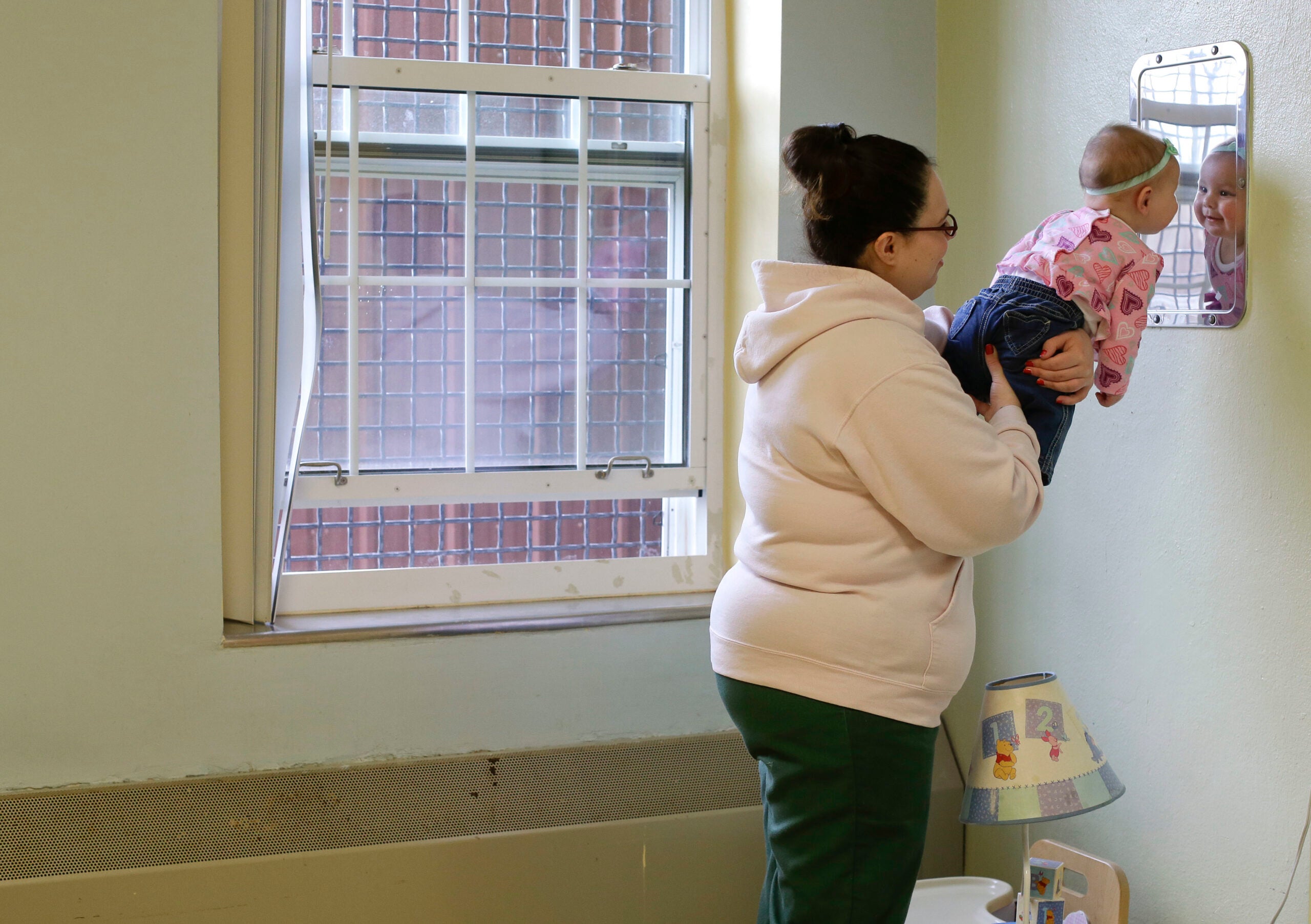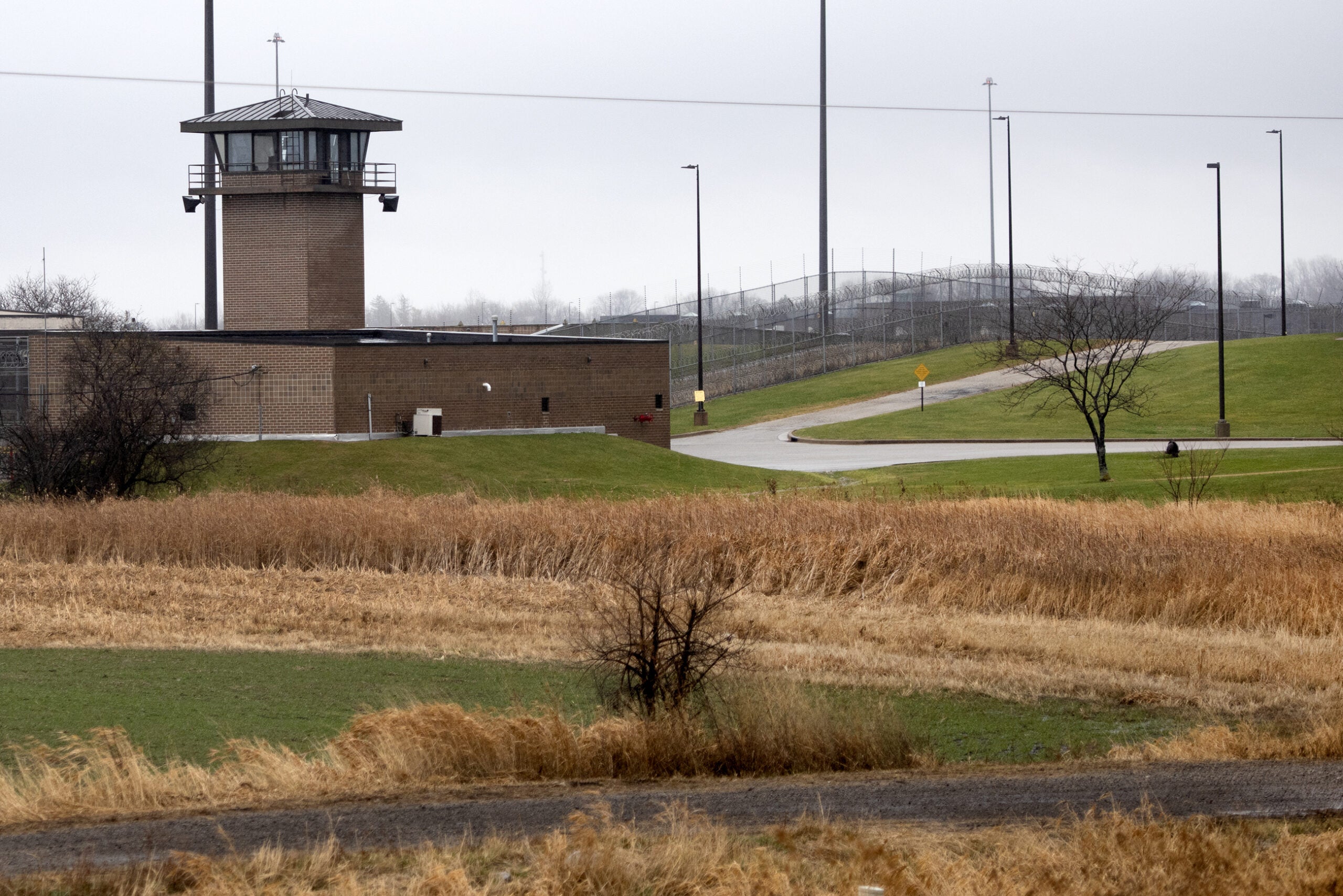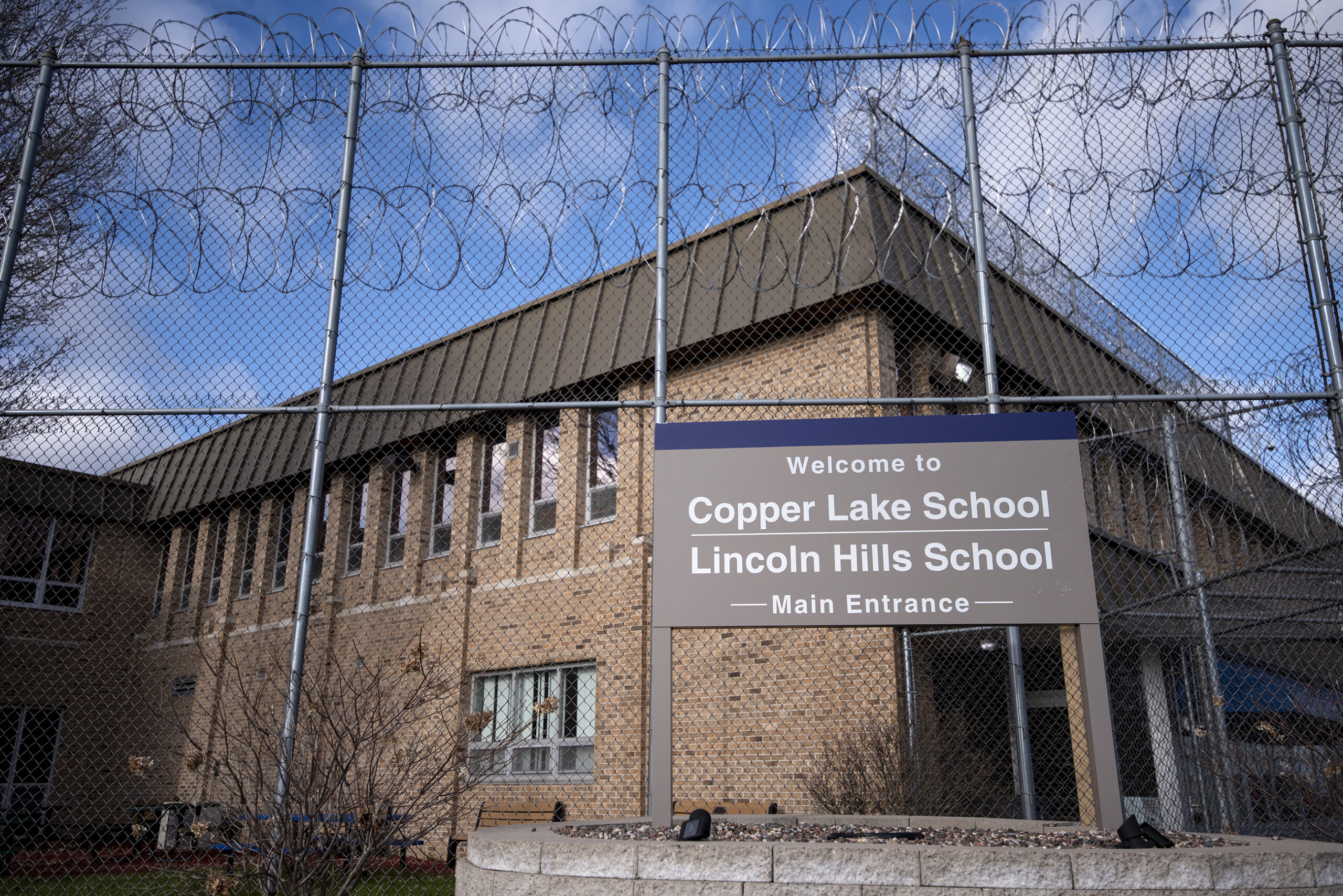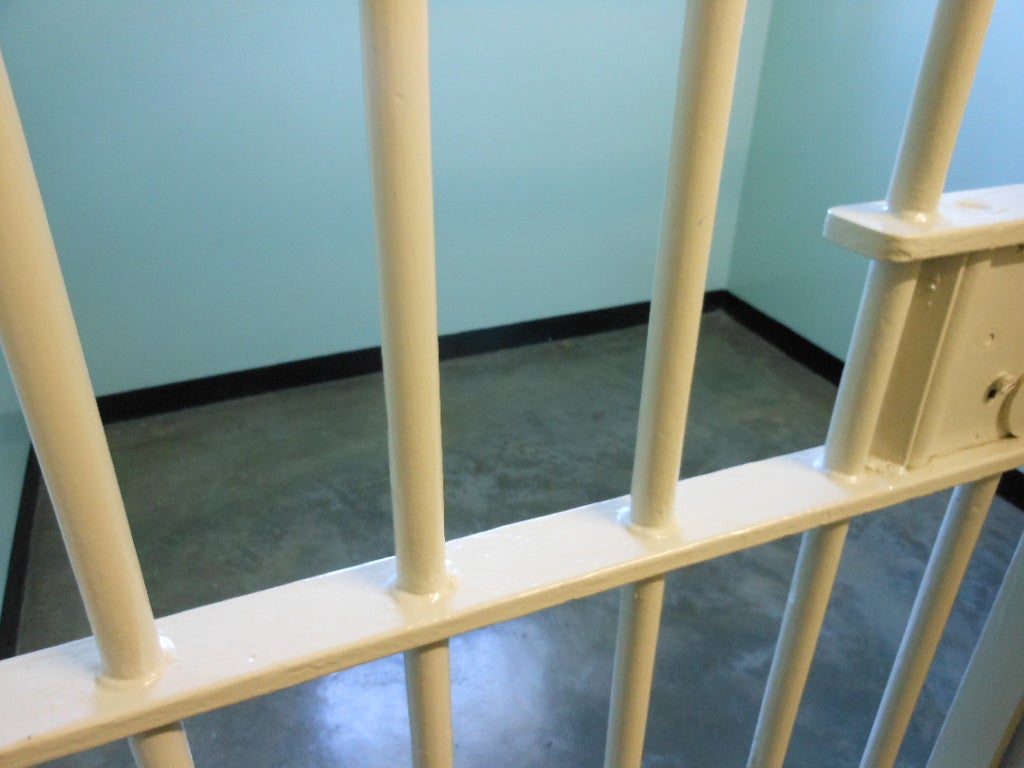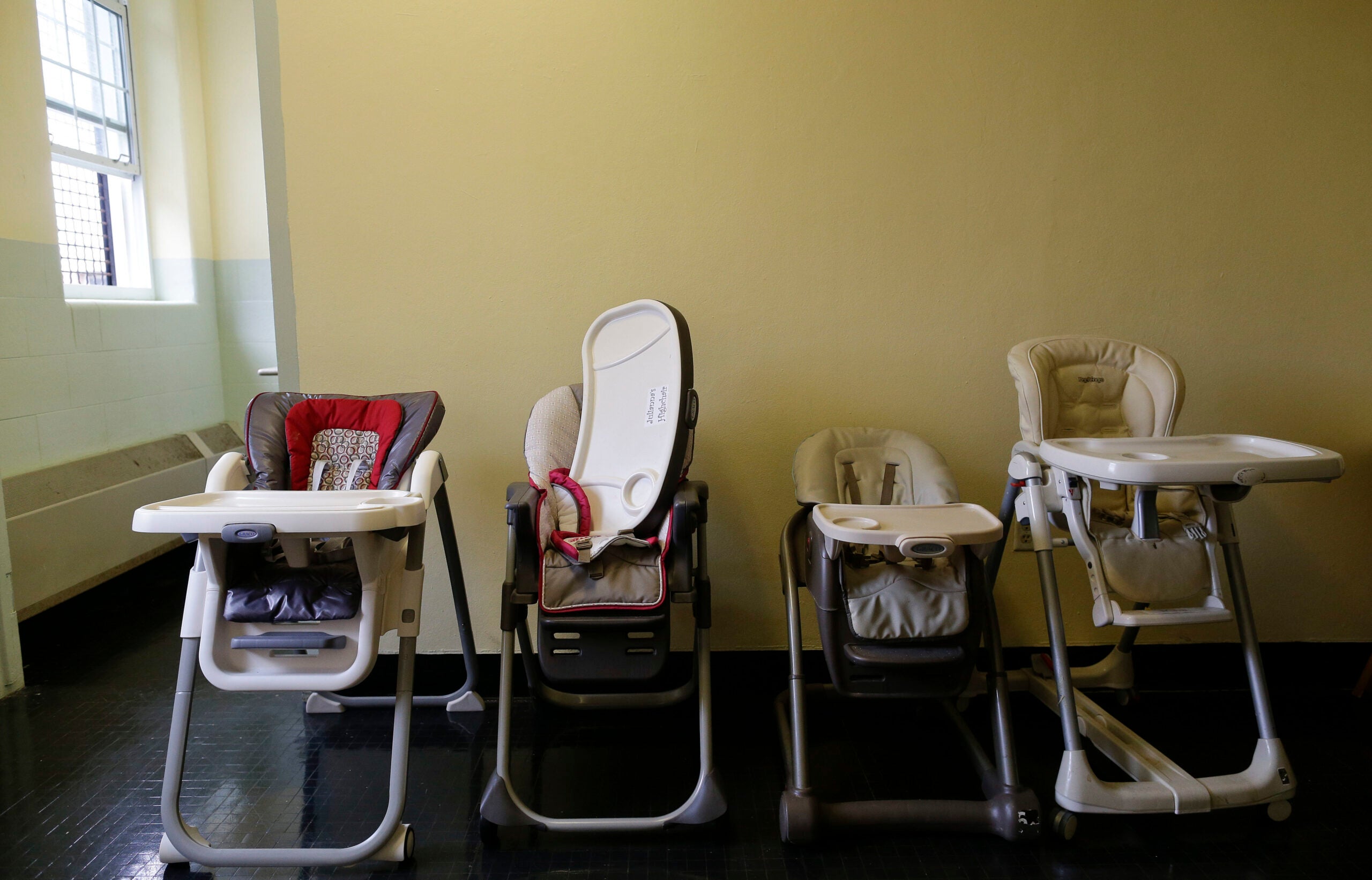The American Civil Liberties Union of Wisconsin is asking a judge to step in and order the state to fully implement a program for incarcerated moms.
The lawsuit filed last week argues Wisconsin’s Department of Corrections isn’t complying with a decades-old state law designed to help incarcerated mothers keep physical custody of their infants.
That 1991 law states those services, known as a “mother-young child care program” shall be available to women in the system who are pregnant or have babies under 1 year old.
News with a little more humanity
WPR’s “Wisconsin Today” newsletter keeps you connected to the state you love without feeling overwhelmed. No paywall. No agenda. No corporate filter.
The law states the program must be available to women who are “prisoners or on probation, extended supervision or parole.” It also says women can be approved by the department to participate as an alternative to ending up back behind bars because their probation, extended supervision or parole was revoked.
Close to a dozen other states have prison nursery programs, which allow incarcerated women to continue parenting their newborns, according to the ACLU. Some of those programs allow children to remain with their mothers until they’re 18 months old.
But the ACLU’s lawsuit says Wisconsin has failed to offer a child care program for incarcerated mothers, despite requirements in a law that’s been on the books for more than 30 years.
“A child should not be deprived of forging a relationship with their parent just because the parent is caught up in the criminal legal system,” said Hayley Archer, a staff attorney for the ACLU of Wisconsin. “Contact between incarcerated people and their families has positive impacts for everyone, including better health, reduced recidivism, improved school performance.”
Lawsuit: DOC officials weren’t aware of program
One of the women who is suing, Alyssa Puphal, is currently incarcerated at the Robert E. Ellsworth Correctional Center in Union Grove. She was separated from her son about 24 hours after she gave birth to him last August.
Because her family lives far away, Puphal has only been able to have four visits with him since he was born, according to the lawsuit.
“That has caused her tremendous emotional pain,” Archer said.
Puphal learned of a mother-child program while she was pregnant and asked to participate. But DOC officials told her they weren’t aware of such a program. One corrections supervisor replied to Puphal’s request by saying, “information from Admin here is that it is an old statute and there is no funding for it,” the lawsuit says.
After saying the program didn’t exist, DOC officials later told Puphal she couldn’t participate because she wasn’t eligible, according to the lawsuit. But the ACLU says the DOC never explained in its response to Puphal what the eligibility criteria were or why she didn’t qualify.
Another plaintiff, Natasha Curtin-Weber, is eight months pregnant while locked up at the Taycheedah Correctional Institution. She asked to participate in the mother-child program so that she could remain with her baby once she gives birth. But, as of last month, she hadn’t gotten any response from the department, the lawsuit says.
“She is facing a lot of fear,” Archer said. “Because, of course, birth can can be quite a scary process for anybody, regardless of where you live. For incarcerated people … it can cause a lot of fear to know that you will be separated from your child.”
DOC says programs are available for mothers out on supervision
A Department of Corrections spokesperson says Wisconsin does offer programming to support mothers who are out on parole, probation or extended supervision.
It uses three contractors — ARC Maternal and Infant Program in Madison, Bethany Recovery Center in Oconomowoc and Meta House in Milwaukee — to help women avoid recidivism by treating substance abuse disorder and other issues. Last year, 224 women participated in those programs, according to the DOC.
But the ACLU argues Wisconsin isn’t following the state law because a program for mothers and babies isn’t available to women who are serving time behind bars instead of through community supervision.
And Archer says the program isn’t always available to women as an alternative to having their probation revoked. She says it wasn’t offered to Puphal while she was pregnant and wound up behind bars for a probation violation.
“If DOC is providing the programming that they’re asserting, it’s not being done in a meaningful way,” Archer said.
The law details several criteria for the program, including that department must:
- Place program participants in the least restrictive placement consistent with community safety and correctional needs and objectives.
- Provide a stable, safe and stimulating environment for each child participating in the program.
- Provide program services with the goal of achieving a stable relationship between each mother and her child during and after participation in the program.
- Prepare each mother to be able to live in a safe, lawful and stable manner in the community upon parole, extended supervision or discharge.
Yet, when the ACLU filed a public records request seeking policies and procedures related to Wisconsin’s mother-child program, it got a response saying no such records exist, the lawsuit says.
The ACLU is getting pro bono assistance from Quarles & Brady LLP in the case. It’s assigned to Judge Jacob Frost in Dane County Circuit Court.
Wisconsin Public Radio, © Copyright 2025, Board of Regents of the University of Wisconsin System and Wisconsin Educational Communications Board.

